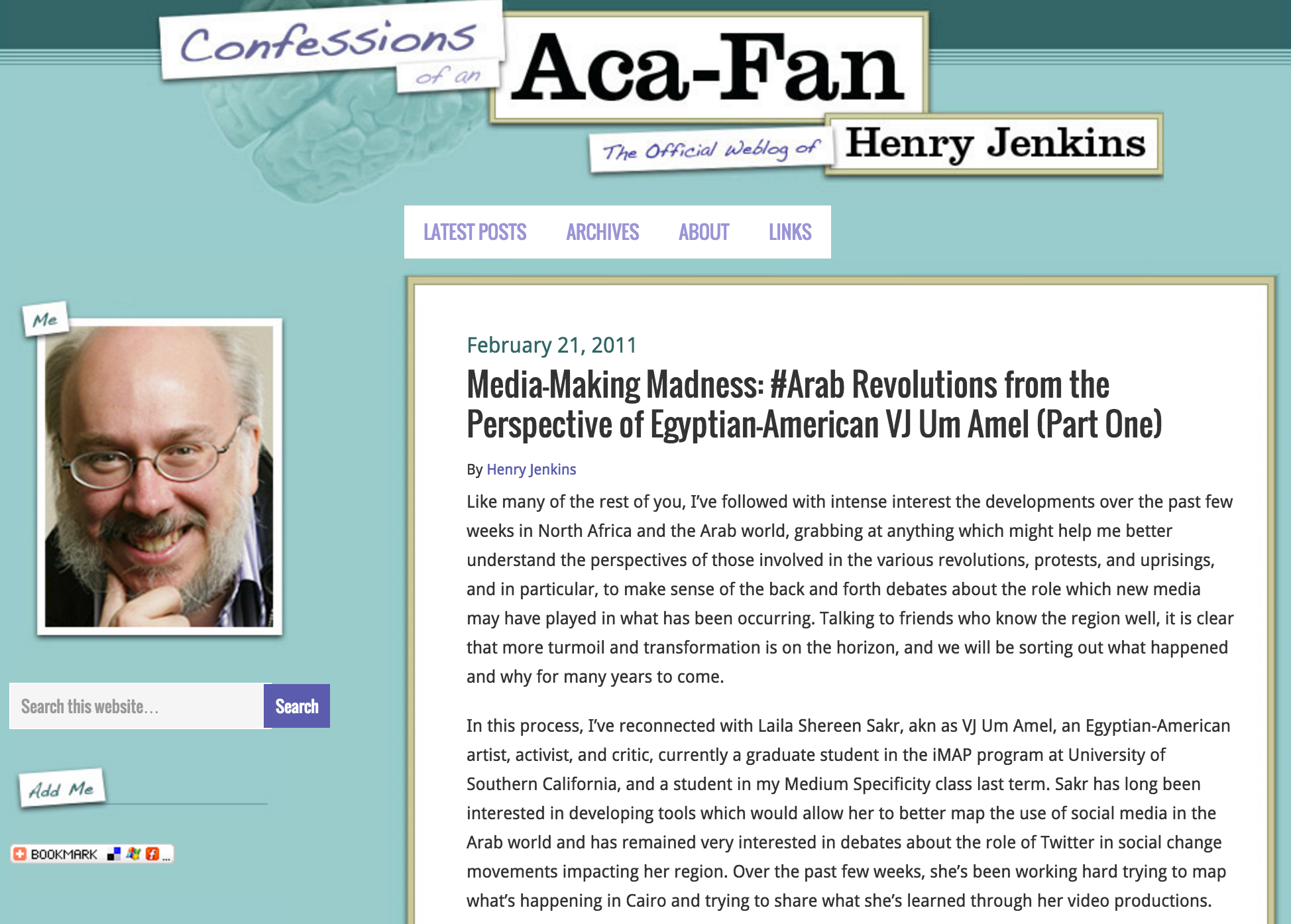Media-Making Madness: #Arab Revolutions from the Perspective of Egyptian-American
“Media-Making Madness: #Arab Revolutions from the Perspective of Egyptian-American” in The Official Weblog of Henry Jenkins, 02/21/2011.
I see the ecology in the field of database narrative making and visualizing as rich, undiscovered territory to explore. We need to consider various methodological approaches to social media analysis for both the expert and the student. In the months to come, I plan to provide suggested approaches of social media analysis for teachers. Also, I will be documenting the techniques used in the research practice as we uncover–all of this is work in progress.
In parallel, my itch to create innovative VJ mixes continues. They are like my version of blog posts, a type of serialized commentary. Last week, I wanted to do a live remixing of tweets and people’s YouTube videos and project it into Tahrir via Al Jazeera’s bandwidth. I still want to do it, however, Tahrir no longer makes sense. So am connecting with friends and family there to find an appropriate time and place. One way this might go down is as a show comprised of performances of other Arab-American/ Egyptian-American artists like L.A.-based comedian, Ahmed Ahmed, Omar Effendum, Wesam Nassar, Rita Qatami, Leyya Tawil and others. Imagine projecting back to the people in Egypt the tweets from around the world–parsed out by language, Italian, French, Arabic, Japanese, etc…
Common among the creative fields–the arts, science, technology and design–is a commitment to the production of new knowledge based on original research. This presentation hopes to have extended notions of how innovative methods might be applied in a Media studies or Middle East studies context. Through this VJed publication, my aim has been to demonstrate the notion of design/ art practice as transformative research. Most recently in Arab countries, social media and its surprising political usages have created interplay between the application of structure and resistance that have been transformative. In conclusion, I argue that social media in the Arab world be unique–both in terms of how the society is operating, tightly woven; and in terms of media’s history in the Arab world, born in print form as an apparatus of the state since the Ottoman Empire. Where U.S. media, in principle, acts to ensure the power of the government remains under checks and balances, in the Arab world it functions quite differently. And so when, in Egypt, media became actively dependent on the social fabric, rather than institutional sources of information and analysis, that opened up an uncertain bag of worms for an entire region.
View Publication